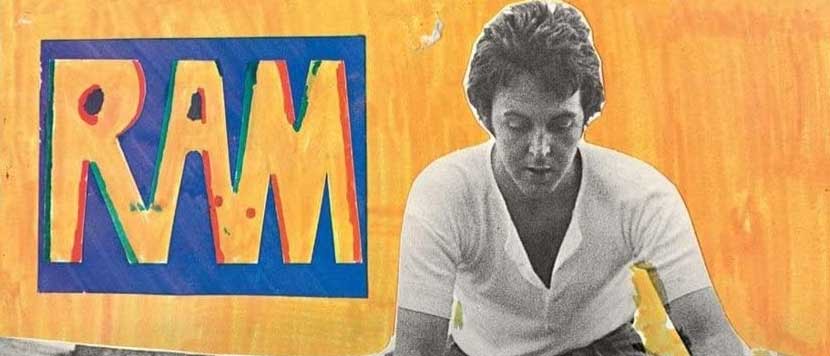You can trust Louder
It has been 50 years since Ram was first released, and EMI have given fans the chance to buy it again in a half-speed mastered mix that is, like all the other mixes and reissues, slightly shinier than before. The only other difference is that caused by the passage of time, which has wrought great changes on Ram.
When this album – credited to Paul and Linda McCartney for publishing reasons, and beginning Paul’s long career of annoying chart compilers by crediting records differently every time – came out in 1971, it was not greeted, as it has been for most of the 21st century, as a little masterpiece or a brilliant set of wonderfully crafted songs, but as the work of the man who had broken up The Beatles, thereby single-handedly fucking up the 1960s dream for everyone.
And so where now we hear the beauty of The Back Seat Of My Car (side one of Abbey Road in a single song) or the daft versatility of Uncle Albert/Admiral Halsey (side two of Abbey Road in a single song), in 1971 critics heard laziness, self-indulgence and spite (which there was some of in the frustrated anti-Beatles court case song Too Many People, whose lyric sparked off John Lennon’s angrier responses on Imagine).
It also didn’t help that Ram was the (better-produced) follow-up to McCartney, Paul’s debut solo album, and like that record was full of small ideas, beautifully realised but lacking the wide musical ambition that The Beatles were famous for (it’s hard to remember now, but all the ex-Beatles found it difficult for years to escape the show of their enormous past).
What we now see as a charming and understandable response to the epic grandeur of Abbey Road and Sergeant Pepper was then seen as half-arsed and idle, with a world briefly besotted with the idea that the true solo talent in The Beatles was clearly George Harrison.
And where now we enlightened many see Ram as McCartney’s acknowledgment that men grow up and that having a family is not the death of the soul, but rather another step on life’s journey, panic-stricken fans and critics in their early thirties used words like ‘muzak’ and ‘cosiness’ to put down the music on Ram.
Time, however, is even better than a half-speed remaster, and Ram stands revealed as a good album with some great songs on it.
Sign up below to get the latest from Classic Rock, plus exclusive special offers, direct to your inbox!
Paul McCartney is interviewed about the making of Ram is the current issue of Classic Rock.
David Quantick is an English novelist, comedy writer and critic, who has worked as a journalist and screenwriter. A former staff writer for the music magazine NME, his writing credits have included On the Hour, Blue Jam, TV Burp and Veep; for the latter of these he won an Emmy in 2015.


